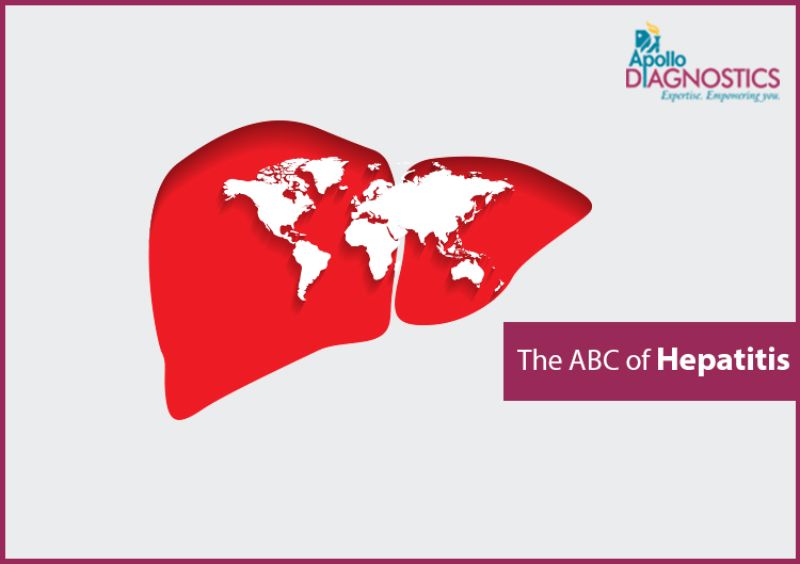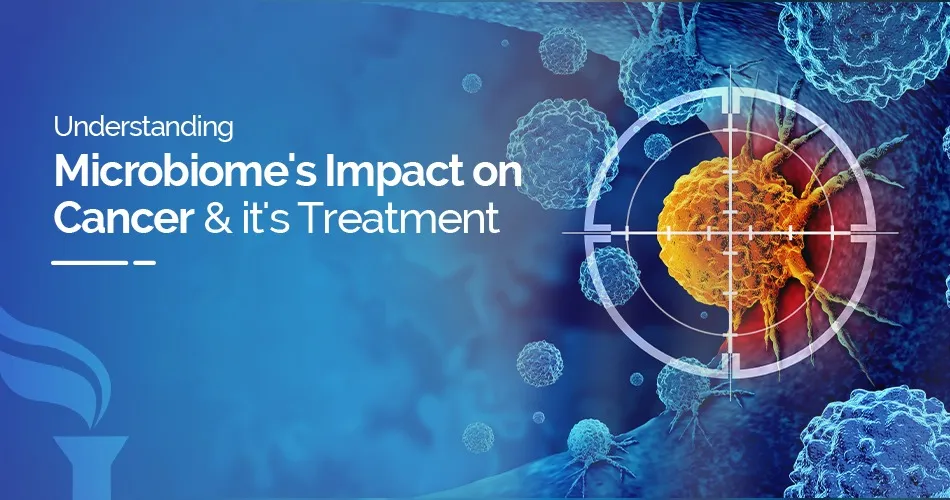The ABCs of Hepatitis
Jun 04, 2020

The World Health Organisation defines hepatitis as an inflammation of the liver, caused by hepatitis viruses as well as other infections, alcohol and drugs, and autoimmune diseases. Five main types of hepatitis are identified – A, B, C, D, and E. While hepatitis can be limited to just an inflammation, it may also lead to fibrosis, liver cirrhosis or liver cancer.
The causes of hepatitis include contaminated food and water and infected body fluids. The virus can be transmitted through blood transfusions or the use of contaminated equipment for medical procedures.
Some symptoms include yellow colored eyes and skin, nausea, vomiting, abdominal pain, fatigue, etc.
Here are some basic facts about hepatitis A, B, and C:
Hepatitis A – It takes the liver about two months to heal from this infection. It can be prevented with a vaccine and does not usually cause any complications. It is transmitted through the consumption of contaminated water or food. Most of these cases are mild and the patient is able to recover fully. Sometimes, it can be severe and life-threatening, especially in people who live in areas with poor sanitation.
Hepatitis B – This takes a longer recovery period, usually about six months. Sometimes it may develop into a long-term infection that leads to liver damage. It can be prevented with the help of a vaccine. It can be transmitted through sexual intercourse with an infected person or from mother to child at birth. Any kind of contact with infected fluids, such as used needles or infected blood, is enough to transmit the disease.
prevented with the help of a vaccine. It can be transmitted through sexual intercourse with an infected person or from mother to child at birth. Any kind of contact with infected fluids, such as used needles or infected blood, is enough to transmit the disease.
 prevented with the help of a vaccine. It can be transmitted through sexual intercourse with an infected person or from mother to child at birth. Any kind of contact with infected fluids, such as used needles or infected blood, is enough to transmit the disease.
prevented with the help of a vaccine. It can be transmitted through sexual intercourse with an infected person or from mother to child at birth. Any kind of contact with infected fluids, such as used needles or infected blood, is enough to transmit the disease. Hepatitis C – This cannot be prevented by a vaccine. It is a long-term infection that can lead to liver cirrhosis. It does not even show up through symptoms. Infection occurs through contact with contaminated equipment and infected fluids.
Hepatitis D virus occurs only in those affected with HBV as well. It can be prevented by a hepatitis B vaccine. Hepatitis E virus outbreaks are seen mostly in developing parts of the world, the leading cause being contaminated food and water.
Diagnosis
Hepatitis is diagnosed with the help of liver function tests that use blood samples to test the functioning of the liver. If the enzyme level is high, it might indicate a stressed or damaged liver. Further, other blood tests such as antibody tests for autoimmune disease may be recommended. Abdominal ultrasound and liver biopsy are some other procedures.
Treatment
Aside from vaccine prevention, Hepatitis A and B do not require any treatment as such. Symptoms such as nausea and diarrhoea may be treated. In case of chronic hepatitis B, antiviral medications are prescribed for months or years together, and regular monitoring is advised. Hepatitis C is also treated with the help of antiviral medication, in both its acute and chronic forms. Hepatitis D can be prevented using HBV vaccination, and hepatitis E is supposed to be an acute infection that resolves on its own.
Prevention
Since the conduit for all the viruses seems to be contaminated food, water and equipment or infected fluids, minimising this contact can help prevent the disease. Maintaining proper hygiene and avoiding contact with used needles and infected blood is a must. The importance of vaccination can also never be undermined, especially since what starts out as a small infection may lead to serious problems later on. Make sure that your children get the vaccine at the right place and the right time to avoid suffering in future. Make an appointment with Apollo Diagnostics today.s
Related Blog Post
Blog Categories
- Child Health
- Mens Health
- Women's Health
- Mental Health
- Health Myths & Facts
- Fitness
- Nutrition/Recipes
- Remedies
- Weight Management
- Stress Management
- Health Supplements
- Addiction Management
- Disease Management
- Allergy
- Anemia
- Arthritis
- Asthma
- Autoimmune Diseases
- Blood Pressure
- Cancer
- Deficiencies
- Dengue/Malaria/Chikungunya
- Diabetes
- Eye Problems
- Heart Diseases
- Hepatitis
- HIV/AIDS/STD
- Hormonal Imbalance
- Infection/Flu/Viral
- Kidney
- Liver
- Menstrual Problems
- Pregnancy
- Skin & Hair Problems
- Stomach Ailments
- Thyroid
- Others
- Health Checkups
- Diagnostics/Pathology
- Lifestyle & Wellness
- Covid
- Medical Tests
- Cholesterol
- Health Tips
- Parent Care/Old Age
- Lungs
- Food Intolerance








